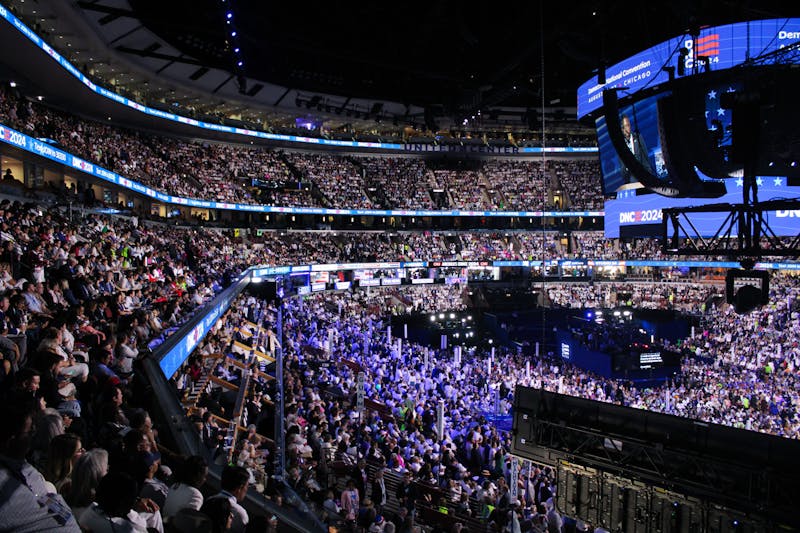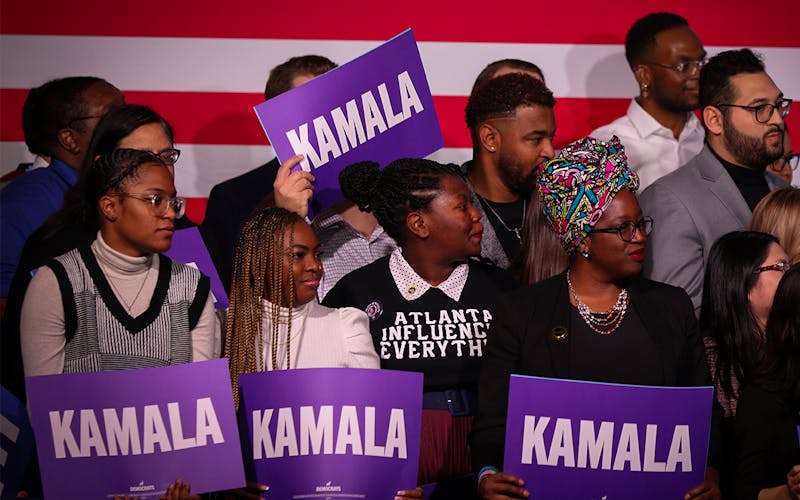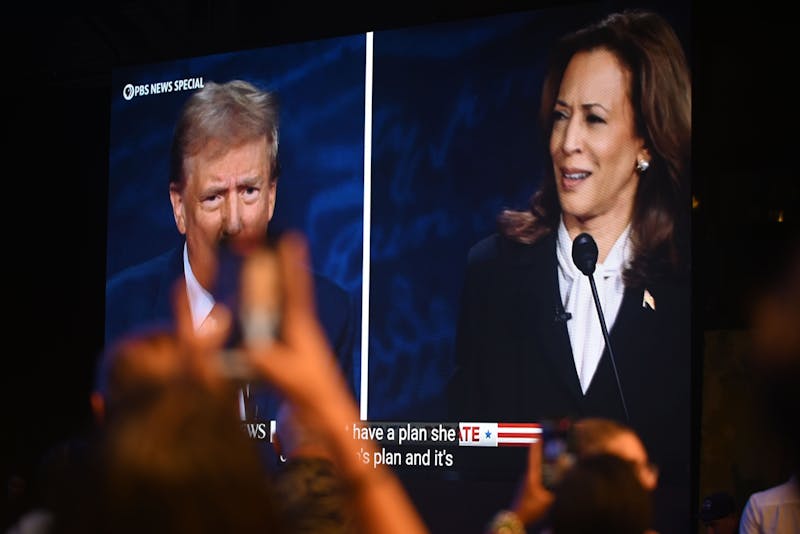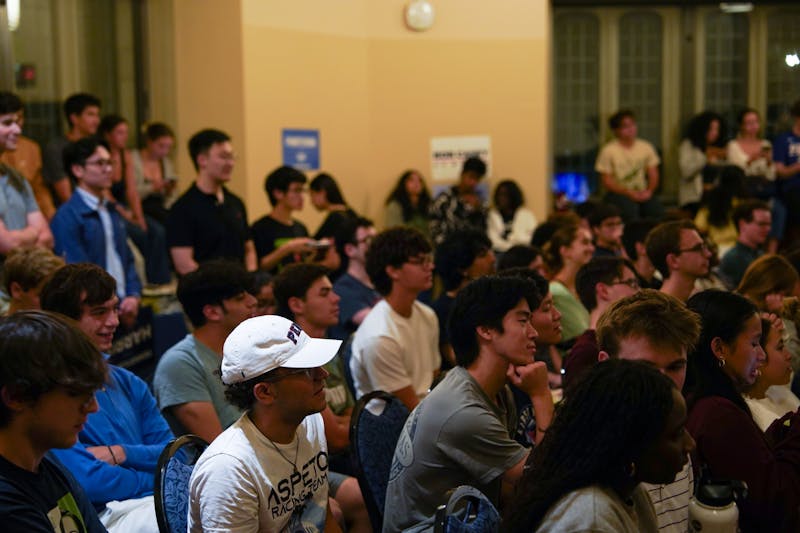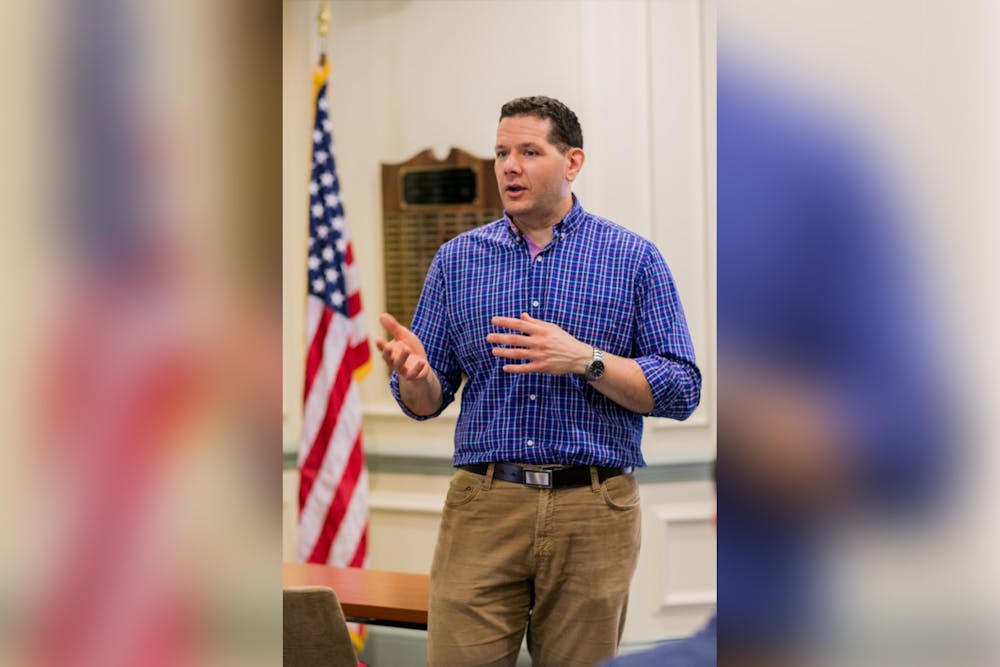
Political science professor Matthew Levendusky gave a talk on Sept. 23 titled “How to Talk About Politics Even When You Disagree."
The event, which was organized by the SNF Paideia Program, Penn Libraries, and the Costa Family Building Bridges Fund, took place in the Van Pelt-Dietrich Library and drew around 40 attendees. College senior and SNF Paideia Fellow Angel Ortiz interviewed Levendusky about his advice on engaging in constructive political dialogue, followed by a group discussion and a question and answer session.
Throughout the talk, Levendusky advocated for finding common ground and the willingness to listen to those with opposing viewpoints. He stressed the importance of listening with an open mind, rather than immediately trying to persuade someone.
“In order to actually change someone’s opinions, you have to dig down, talk to them, understand where they’re coming from, and show them how their concern should actually lead them to a different conclusion,” Levendusky said. “And that takes a fair amount of listening and intellectual humility, and an understanding where you might be gaining something from this process as well, rather than just incurring your own vision to them.”
While clarifying that there are no foolproof strategies, Levendusky suggested finding common values to come to a position of mutual respect and understanding.
The interview also discussed political polarization. Levendusky articulated that while Americans are divided, these divisions are exaggerated by both mainstream and social media. Referencing some of the research he conducted in his 2023 book "Our Common Bonds," Levendusky added, “The types of people who tend to make content on social media are people who feel really passionate about politics and tend to have somewhat more extreme opinions.”
During the Q&A, attendees asked for advice on the real-world application of debate and discussion. Many commented on the difficulty of discussing politics with friends or family who share different opinions, as well as interacting with professors who express political views in class.
The talk brought together a diverse group of attendees, from underclassmen students to Penn professors, some of whom said they have little prior knowledge or experience in politics. College first year Helen Liu expressed her interest in learning more about politics.
“The great thing about being at an event with a lot of knowledgeable people is that they can ask great questions, and I can learn even more without having [a] total foundation in the subject,” Liu said.
Wharton sophomore Alonso Fontana said that while he is not an American citizen, he has an interest in the United States election and politics.
“Sometimes you have to agree to disagree,” Fontana said when asked about his takeaways from the event. “And that is the beauty of argument. You’re never going to agree with everyone.”
Levendusky emphasized a similar sentiment about the reality of disagreement in an interview with The Daily Pennsylvanian.
“At the end of the day, there are going to be some things where you’re not going to be able to find agreement on all issues, and that’s okay,” Levendusky said. “It’s about getting them to understand that the other side has a reasonable point of view, and that is an accomplishment."
The Daily Pennsylvanian is an independent, student-run newspaper. Please consider making a donation to support the coverage that shapes the University. Your generosity ensures a future of strong journalism at Penn.
Donate







